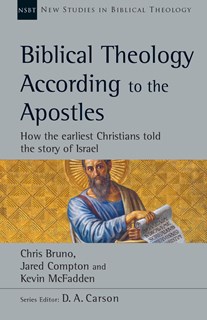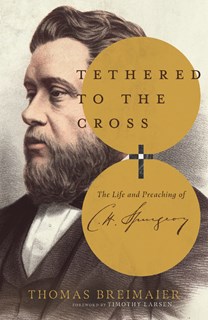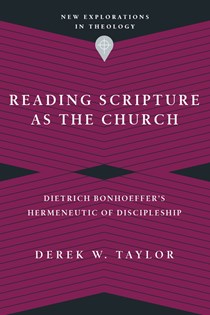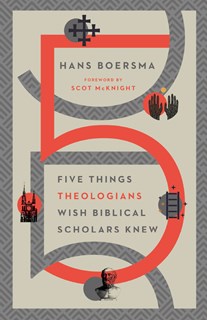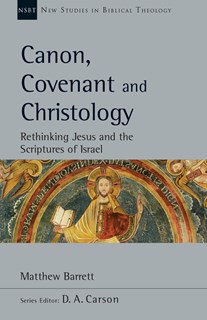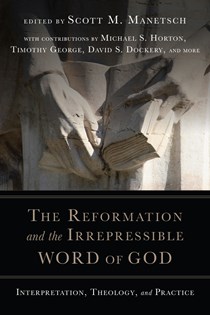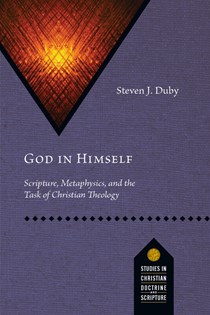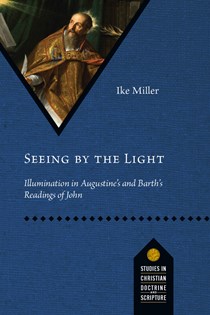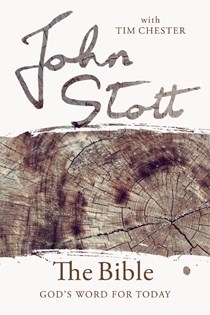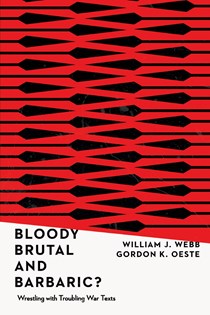Scripture/Revelation
-
Biblical Theology According to the Apostles
How the Earliest Christians Told the Story of Israel
New Studies in Biblical Theology
by Chris Bruno, Jared Compton, and Kevin McFadden
Series edited by D. A. CarsonHow did the apostles understand the Old Testament? The New Testament's explicit summaries of the Old Testament story of Israel give readers direct access into the way the earliest Christians did biblical theology. This NSBT volume examines the passages in the Synoptic Gospels, Acts, Paul's letters, and Hebrews which recount the characters, events, and institutions of Israel's story.
-
Tethered to the Cross
The Life and Preaching of Charles H. Spurgeon
by Thomas Breimaier
What guided English Baptist minister Charles H. Spurgeon's reading of Scripture? Tracing the development of Spurgeon's thought and his approach to biblical hermeneutics throughout his ministry, theologian and historian Thomas Breimaier argues that Spurgeon viewed the entire Bible through the lens of the cross of Christ.
-
Reading Scripture as the Church
Dietrich Bonhoeffer's Hermeneutic of Discipleship
New Explorations in Theology
by Derek W. Taylor
The Bible is meant to be read in the church, by the church, as the church. Following the example of Dietrich Bonhoeffer, Derek Taylor argues that we should regard the reading of Scripture as an inherently communal exercise of discipleship. In conversation with other theologians, Taylor shares how this approach to Scripture can engender a faithful hermeneutical community.
-
Five Things Theologians Wish Biblical Scholars Knew
by Hans Boersma
Foreword by Scot McKnightThe relationship between theology and biblical studies is often marked by misunderstandings, methodological differences, and cross-discipline tension. With an irenic spirit as well as honesty about differences that remain, theologian Hans Boersma highlights five things he wishes biblical scholars knew about theology so that these disciplines might once again serve the church hand in hand.
-
Canon, Covenant and Christology
Rethinking Jesus and the Scriptures of Israel
New Studies in Biblical Theology
by Matthew Barrett
Series edited by D. A. CarsonThe divine inspiration of Scripture may be confidently affirmed from Paul's epistles. However, it is hard to find such an explicit approach from Jesus and the Gospels. In this NSBT volume, Matthew Barrett argues that Jesus and the apostles have just as convictional a doctrine of Scripture as Paul or Peter, but it will only be discovered if the Gospels are read within their own canonical horizon and covenantal context.
-
The Reformation and the Irrepressible Word of God
Interpretation, Theology, and Practice
Edited by Scott M. Manetsch
The Protestant Reformers were transformed by their encounters with Scripture. Bringing together the reflections of church historians and theologians delivered at Trinity Evangelical Divinity School, these essays consider historical, hermeneutical, theological, and practical issues regarding the Bible, revealing that the irrepressible Word of God continues to transform hearts and minds.
-
God in Himself
Scripture, Metaphysics, and the Task of Christian Theology
Studies in Christian Doctrine and Scripture
by Steven J. Duby
How do we know God? Can we know God as he is in himself? Theologians have argued for the role of natural and supernatural revelation, while others have argued that we know God only on the basis of the incarnation. In this SCDS volume, Steven J. Duby casts a vision for integrating natural theology, the incarnation, and metaphysics in a Christian description of God in himself .
-
Seeing by the Light
Illumination in Augustine's and Barth's Readings of John
Studies in Christian Doctrine and Scripture
by Ike Miller
How can we understand God's revelation to us? Exploring both Augustine's and Karl Barth's readings of the Johannine literature, Ike Miller casts a broader vision of divine illumination, arguing for a fully Trinitarian view of illumination that forms not just our intellect, but also appeals to the affections and encourages our ethical action.
-
The Bible
God's Word for Today
by John Stott
With Tim ChesterHow can Christians effectively engage today's world while staying true to Scripture? Calling us to listen well to both the Word and the world, John Stott shows how Christianity can preserve its authentic identity and remain relevant to current realities. With pastoral wisdom and clear biblical exposition, Stott helps readers understand the central role of the Word of God in the church and the individual lives of all followers of Jesus.
-
Bloody, Brutal, and Barbaric?
Wrestling with Troubling War Texts
by William J. Webb and Gordon K. Oeste
Christians cannot ignore the intersection of religion and violence. In our own Scriptures, war texts that appear to approve of genocidal killings and war rape raise hard questions about biblical ethics and the character of God. Have we missed something in our traditional readings? Identifying a spectrum of views on biblical war texts, Webb and Oeste pursue a middle path using a hermeneutic of incremental, redemptive-movement ethics.


